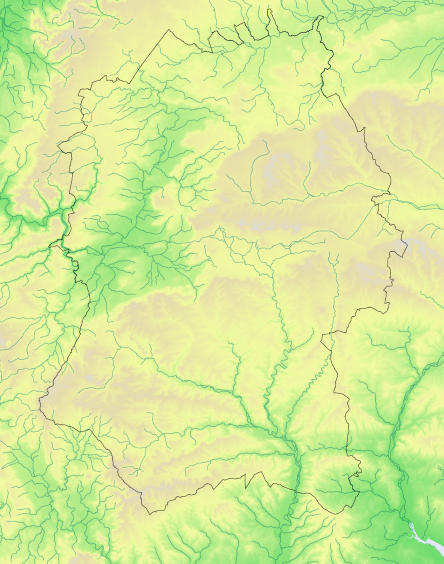Coal Tit Periparus ater
Winter distribution change
Common resident, especially in conifers, some moving into gardens in winter
Atlas species lists
- Breeding distribution 1995–2000
- Summer abundance 1995–2000
- Winter distribution 1995–2000
- Winter abundance 1995–2000
- Breeding distribution 2007–2012
- Summer abundance 2007–2012
- Winter distribution 2007–2012
- Winter abundance 2007–2012
- Breeding distribution change
- Summer abundance change
- Winter distribution change
- Winter abundance change
More Coal Tit maps
- Breeding distribution 1995–2000
- Summer abundance 1995–2000
- Winter distribution 1995–2000
- Winter abundance 1995–2000
- Breeding distribution 2007–2012
- Summer abundance 2007–2012
- Winter distribution 2007–2012
- Winter abundance 2007–2012
- Breeding distribution change
- Summer abundance change
- Winter distribution change
- Winter abundance change
More maps for this atlas
Map explanation
This map shows the changes which occurred in the winter distribution of the species between 1995-2000 and 2007-2012, but only in the limited selection of tetrads that were surveyed in winter for Birds of Wiltshire (Wiltshire Ornithological Society 2007).
Key
Status
Nos tetrads

Absent to present
138
31%

Present in both
134
30%

Present to absent
36
8%

Not surveyed
Coal Tits are found in a vast area extending from North Africa and western Europe right across Eurasia to Kamchatka and Japan and south to the eastern Himalayas. They are closely associated with coniferous woods and forests, though they are also found in mixed woods and in parks and gardens where there are some conifers. In some places they have also made the transition to broadleaved woodland.
In Great Britain they are absent only from some Scottish islands and from the fens of eastern England. They are most numerous in the forested parts of Wales and Scotland and in localised pockets in England such as the New Forest and the Forest of Dean. Although they are short distance migrants in some parts of their range, in Britain they are largely sedentary with almost identical summer and winter ranges. Bird Atlas 2007-11 found that there had been a 4% breeding season range expansion since the 1968-72 Breeding Atlas and a 12% expansion in winter range since the 1981-84 Winter Atlas. Annual monitoring schemes showed a 17% population increase in the UK between 1995 and 2010.
In Wiltshire reports from the 19th and early 20th centuries recorded the species as being not uncommon in all areas except open downlands. Birds of Wiltshire recorded them in 415 tetrads, with breeding confirmed or probable in 219 of them. WTA2 recorded them in 426 tetrads with breeding in 194.
References
The following references are used throughout these species accounts, in the abbreviated form given in quotation marks:
“1968-72 Breeding Atlas” – Sharrack, J.T.R. 1976: The Atlas of Breeding Birds in Britain and Ireland. T. & A. Poyser
“1981-84 Winter Atlas” – Lack, P.C. 1986: The Atlas of Wintering Birds in Britain and Ireland. T. & A. Poyser
“1988-91 Breeding Atlas” – Gibbons, D.W., Reid, J.B. & Chapman, R.A. 1993: The New Atlas of Breeding Birds in Britain and Ireland 1988-91. T. & A. Poyser
“Birds of Wiltshire” – Ferguson-Lees, I.J. et al. 2007 : Birds of Wiltshire, published by the tetrad atlas group of the Wiltshire Ornithological Society after mapping fieldwork 1995-2000. Wiltshire Ornithological Society.
“Bird Atlas 2007-2011” – Balmer, D.E., Gillings, S., Caffrey, B.J., Swann, R.L., Downie, I.S. and Fuller, R.J. 2013: Bird Atlas 2007-2011: the Breeding and Wintering Birds of Britain and Ireland
“WTA2” – ("Wiltshire Tetrad Atlas 2 ") the present electronic publication, bringing together the Wiltshire data from “Birds of Wiltshire” and “Bird Atlas 2007-11”, together with data from further fieldwork carried out in 2011 and 2012.
"Hobby" - the annual bird report of the Wiltshire Ornithological Society.

